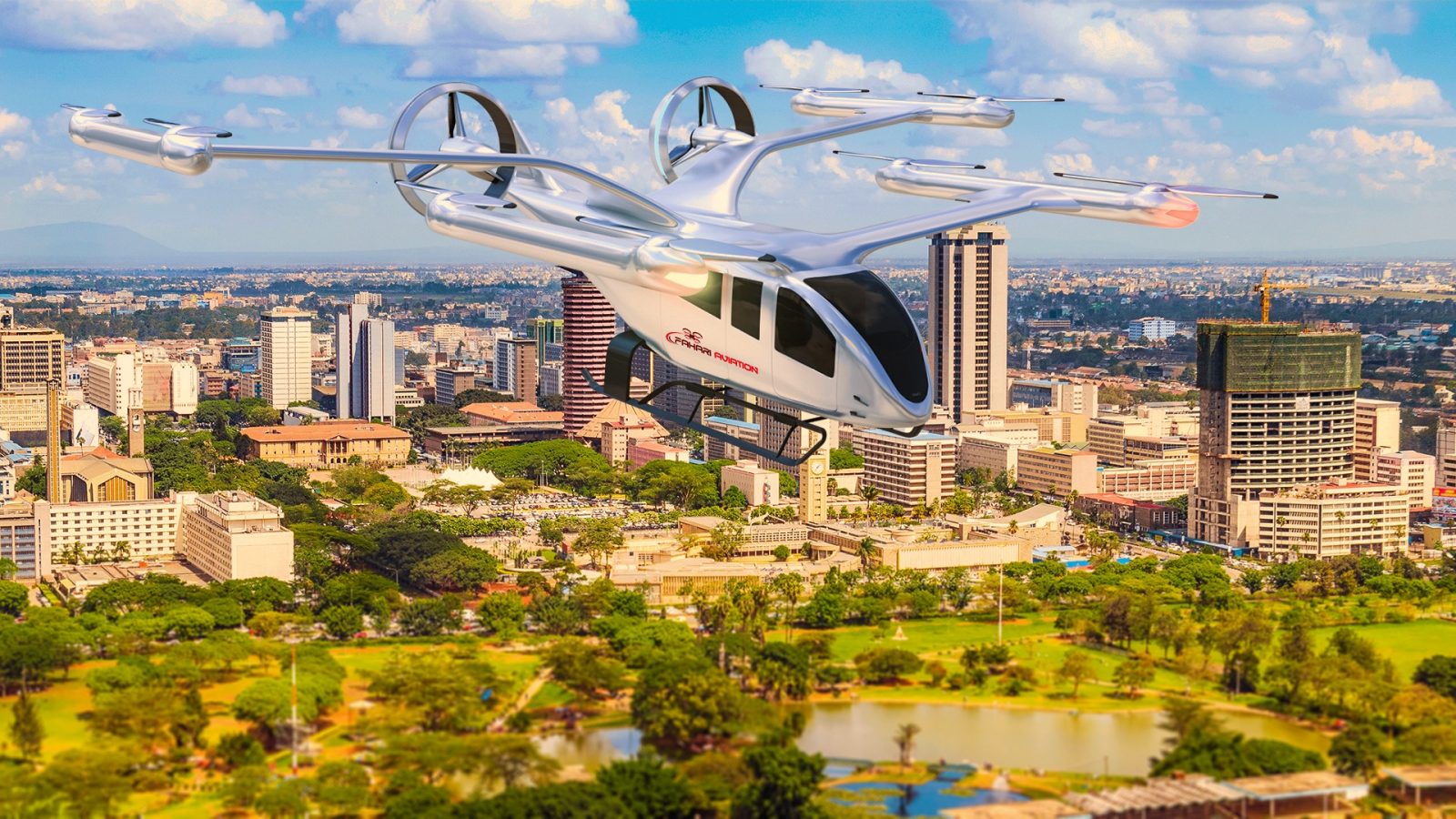
Eve, Embraer‘s urban air mobility (UAM) division, says it has signed a deal with a subsidiary of Kenya Airlines for the acquisition of up to 40 electric takeoff and landing aircraft (eVTOL), with initial deliveries expected in 2026.
Eve revealed the eVTOL agreement with Kenya Airlines’ UAM unit Fahari Aviation on Wednesday, but noted the original letter of intent was signed back in March. In addition to supplying the company with next-generation aircraft, the deal calls for the partners to establish a working group to study development and scaling of air taxis and similar services in Kenya, and create a business model based on those findings.
The moves builds off an accord inked last August to explore the feasibility of using eVTOL craft to launch UAM transport options across Kenya. Earlier this year Kenya Airways CEO Allan Kilavuka announced his decision to push ahead with plans to introduce short-distance electric air services. That’s likely to include air taxi jaunts between Nairobi’s airport and downtown area, which is expected to cut the usual 90-minute road commute down to a six-minute flight.
“Urban air mobility is the future of transport, and we are honored to be the champions of this in the region,” said Kilavuka. “The journey to realize the dream of eVTOL vehicles in Kenya is on course, and the partnership with Eve is a key achievement for us as part of the strategy to adopt new technologies as a growth strategy for the sustainable development of Africa.”
Read: Kenya finally legalizes drones
Kenya was very late in arriving to the electric aviation party, only legalizing the use of drones in 2020. Since then, however, a steadily growing crowd has begun getting involved with the tech.
Kenya Airlines, through Fahari Aviation, has been among those actors pursuing new business activities using drones. That includes developing an array of services for enterprise and public administration clients, and programs to train companies and individuals seeking to provide similar aerial support themselves.
Recently, the organization overseeing the nation’s construction sector announced it would begin deploying drones to verify building codes are being respected, and to identify rogue contractors at work without having obtained permits
Read: Kenya turns to drones to enforce construction regulations to battle building collapses
Meanwhile, several non-governmental organizations are using the craft to turn back environmental damage, while many counties in Keyna are also using UAVs to battle severe malaria problems. Authorities have also joined peers around Africa turning to specialized instant logistics companies like Zipline and Swoop Aero to operate drone deliveries of healthcare supplies to remote and underserved communities.
For its part, Eve has been busy developing a prototype eVTOL for use in UAM services, and has been laying the groundwork for aerial transport activities in the US, as well as international regions like Latin America. Eve co-CEO Andre Stein said the reinforcement of its relationship with Kenya Airlines will serve to root its operations in the nation, and across Africa.
“This is a new chapter of the Eve and Fahari Aviation partnership to strengthen both companies’ commitment to establishing the foundations that will sustainably support the ecosystem for urban air mobility in Kenya,” Stein said. “Last year, we announced a collaboration to develop operational models for Fahari Aviation’s key markets, and today’s announcement confirms that it is evolving successfully.”
FTC: We use income earning auto affiliate links. More.



Comments